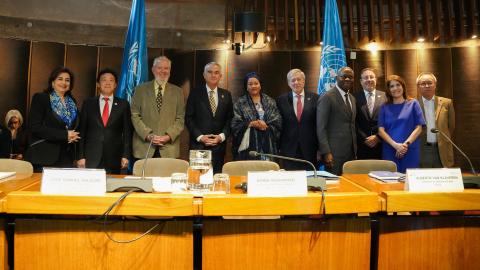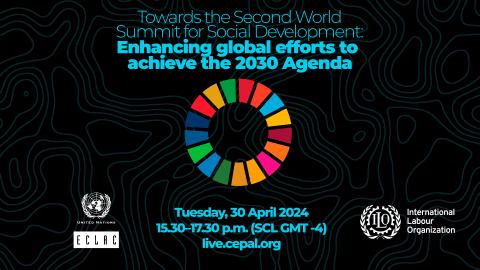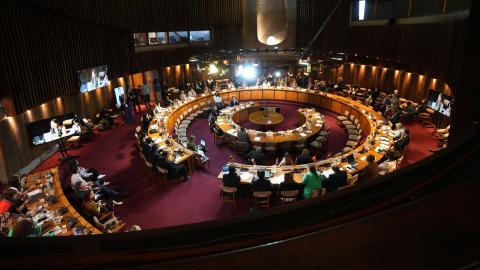Press Release
In the framework of an official visit to Chile, the Jamaican Prime Minister, Andrew Holness, gave a keynote lecture today at the headquarters of the Economic Commission for Latin America and the Caribbean (ECLAC) in Santiago, in which he advocated for deepening cooperation ties between the countries of the Caribbean and Latin America.
The senior official – the first Jamaican leader to visit this United Nations regional organization – was received by ECLAC’s Executive Secretary, Alicia Bárcena, who welcomed him and highlighted the country’s commitment to moving ahead on achieving the goals of the 2030 Agenda for Sustainable Development, in an adverse economic and environmental context.
“We know very well the challenges that Jamaica has due to its vulnerability to external economic and environmental shocks, and how you have bravely faced the consequences of a heavy debt burden, which has fallen from 140% to 115% of GDP in recent years, in a context of declining investment and trade and a contraction in financing,” Bárcena said.
She recalled that Jamaica suffers “the circumstances of highly indebted middle-income countries in the Caribbean” and that precisely because they are unjustly classified as middle income, they face difficulties to access financing.
“Based on that evaluation of highly indebted middle-income Caribbean countries, ECLAC has launched the Caribbean Debt for Climate Adaptation Swap Initiative, which involves using resources from the Green Climate Fund to reduce that debt,” Bárcena indicated.
ECLAC’s Executive Secretary also praised Jamaica’s leadership in the implementation of the 2030 Agenda for Sustainable Development and its goals (SDGs) as well as its commitment to “leaving no one behind.”
In his address, Prime Minister Holness advocated for greater integration among countries of the Caribbean and Latin America. “I am convinced that the path to prosperity must be forged through expanded trade and investment, and deeper regional cooperation between countries,” he said.
The Prime Minister recognized the contribution that ECLAC has made to Latin American and Caribbean economic development, “as a beacon of thinking in the region.” He indicated that his country has followed this school of thought based on the structural change of economies, productive transformation, and equality at the center of development. “We reaffirm our commitment to the ideas and principles of ECLAC,” he stated.
He also fully endorsed and backed ECLAC’s proposal for debt relief for English-speaking Caribbean nations. “Jamaica supports and encourages this proposal,” he said, in reference to the initiative first presented in late 2015 that contemplates the creation of a regional resilience fund to finance measures for climate change adaptation and mitigation.
With regard to that proposal, Holness endorsed the organization’s assessment of growing evidence that the Caribbean public debt has reached unsustainable levels, creating a situation that compromises the subregion’s economic growth if it is not specifically addressed. “I am here to fully endorse that assessment,” he said.
Along with supporting the initiative, the prime minister called on the Commission to make the case for highly indebted Caribbean countries in all relevant international financial forums, and he invited other governments from Latin America to join this cause to protect the viability of the region’s economies.
Louise Arbour, the United Nations Secretary-General’s Representative for International Migration, participated in the keynote lecture as a special guest. She urged Prime Minister Holness to participate actively in the Global Compact, a UN initiative on safe, regular and orderly migration. “I invite you to participate in this and many other initiatives related to migration that are crucial for this region and the entire world. We need your leadership to ensure that much of the negative narrative that ‘poisons’ public opinion about migration is counteracted by a much more appropriate understanding of the benefits of human mobility,” she indicated.



